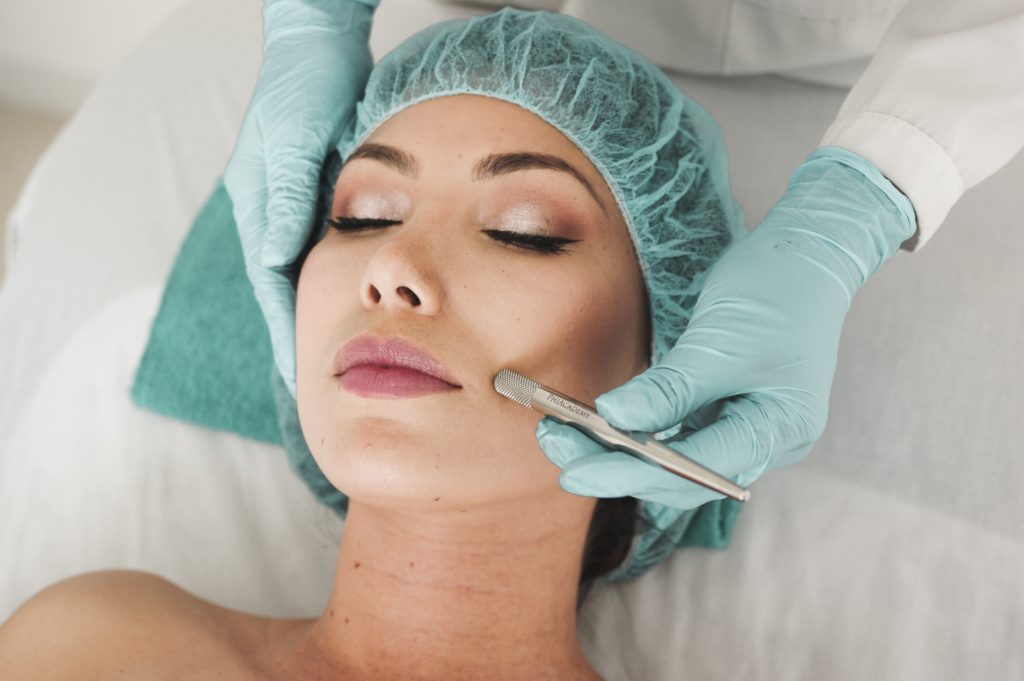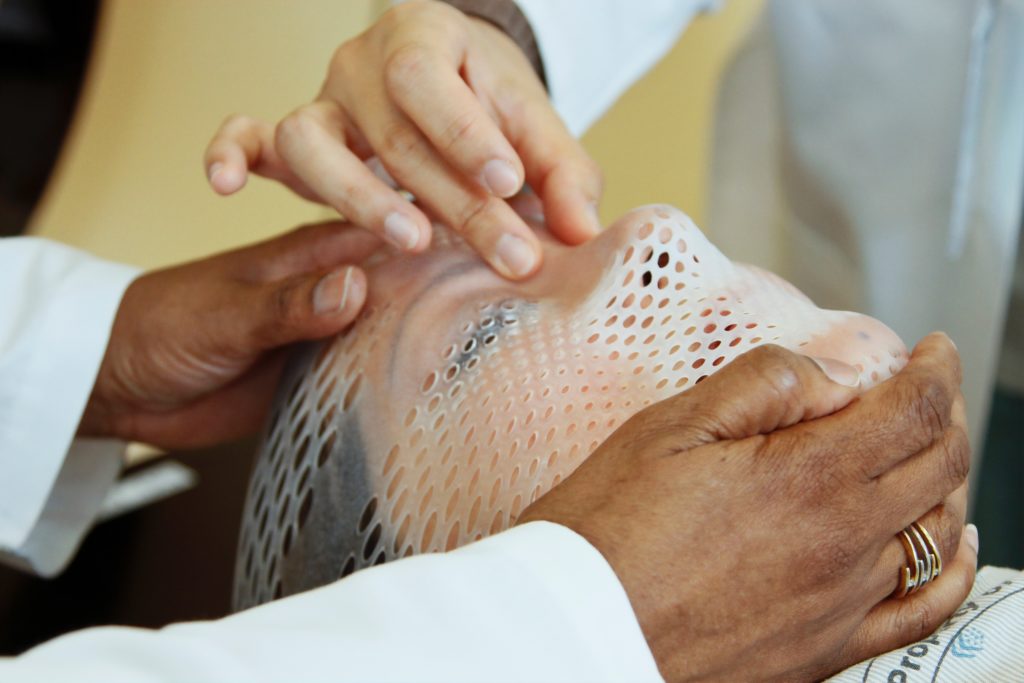Finding the right dermatologist is crucial, whether you’re struggling with a persistent acne problem or hoping to turn back the clock with a cosmetic treatment. But with so many options available, figuring out where to start can be overwhelming.
Choosing the right dermatologist could mean effective treatment, wasted time and money, and even potential damage to your skin. So, doing your research and making an informed decision is essential.
In this guide, we’ll break down the steps you need to take to pick the right dermatologist for your needs, so you can feel confident and achieve healthy, beautiful skin.
1. Determine Your Needs
Determining your needs is an important step in picking the right dermatologist. Firstly, you should identify your specific skin conditions and determine whether you need a dermatologist for medical or cosmetic purposes.
Medical dermatologists treat skin conditions such as acne, eczema, psoriasis, rosacea, and skin cancer. If you have any of these conditions, you will need a dermatologist specializing in medical dermatology.
On the other hand, cosmetic dermatologists focus on improving the appearance of the skin, including treatments such as Botox, fillers, chemical peels, and laser treatments. If you are interested in cosmetic dermatology, you will need to find a dermatologist who has expertise in this area.
Another important consideration is the type of treatments that you are interested in. For example, if you are looking for a specific treatment, such as laser hair removal or tattoo removal, you must find a dermatologist who specializes in these treatments.
Overall, it is important to determine your needs in order to find the right dermatologist who can meet your specific requirements. This will ensure that you receive the best possible care and achieve the desired results.
2. Researching Dermatologists

Researching dermatologists is an important step in finding the right healthcare professional to address your skin concerns. Here are some tips to consider when conducting your research:
- Recommendations from friends and family: Ask friends and family if they have a dermatologist they trust and would recommend. Word-of-mouth recommendations can be invaluable in identifying good dermatologists.
- An online search for dermatologists in your area: Use search engines or healthcare provider directories to find dermatologists in your area. This can provide you with a list of potential dermatologists to consider.
- Check their credentials, certifications, and experience: Once you have a list of potential dermatologists, research their credentials, certifications, and experience. You can find this information on their websites, social media profiles, or online directories. Check if they are board-certified and whether they specialize in the specific skin concerns you have.
- Read reviews and ratings: Look for online reviews and ratings from other patients who have visited the dermatologist. This can provide you with an idea of the quality of care and level of patient satisfaction you can expect from the dermatologist.
By following these tips, you can gather important information to help you narrow down your list of potential dermatologists and ultimately find the right one to address your skin concerns. It is important to take the time to research and evaluate dermatologists to ensure you receive the best possible care for your skin.
3. Evaluating Dermatologists
Evaluating dermatologists is a crucial step in choosing the right one for your skin care needs. Here are some tips to help you evaluate dermatologists:
- Schedule a Consultation: Before choosing a dermatologist, schedule a consultation. This will allow you to meet the dermatologist and evaluate their skills, communication style, and bedside manner.
- Ask Questions: During the consultation, ask the dermatologist about their experience, training, and specialties. You can also ask about your specific skin concerns and the treatments they recommend.
- Observe Communication Skills and Demeanor: How the dermatologist communicates with you. They should be easy to talk to and willing to listen to your concerns. They should also be able to explain complex medical terms in a way you can understand.
- Evaluate the Clinic and Staff: Look around the clinic and evaluate its cleanliness, organization, and overall appearance. Also, pay attention to the staff and how they interact with patients. Are they friendly and helpful? Do they seem knowledgeable and professional?
- Check for Red Flags: Watch out for red flags such as dermatologists who recommend unnecessary treatments, are unprofessional or rude, or have a history of malpractice. You can check a dermatologist’s record by searching online for any complaints or malpractice lawsuits.
By evaluating dermatologists using these tips, you can decide who to trust with your skin care needs. Remember to take your time and choose a dermatologist who makes you feel comfortable and confident in your abilities.
4. Choosing the Right Dermatologist

When it comes to choosing the right dermatologist, it’s essential to gather all the necessary information before making a decision. This includes researching dermatologists in your area, reading reviews and ratings, and evaluating their credentials, certifications, and experience. Once you have gathered all the information, it’s time to analyze it to make an informed decision.
When analyzing the information, it’s essential to consider your needs and preferences. For instance, if you have a specific skin condition that needs treatment, you want to choose a dermatologist with experience in treating that condition. Similarly, if you’re interested in cosmetic treatments, you want to choose a dermatologist with expertise in that area.
It’s also essential to trust your instincts when choosing a dermatologist. If you’re not comfortable with a particular dermatologist or feel that they’re not listening to your concerns, it’s okay to look for someone else. Trusting your instincts is crucial because you want to work with a dermatologist you can trust and feel comfortable with.
Conclusion
Choosing the right dermatologist is crucial for achieving healthy and beautiful skin. Researching and evaluating potential dermatologists may take some time and effort, but the benefits are worth it.
By determining your needs, researching potential dermatologists, evaluating their credentials and communication skills, and ultimately trusting your instincts, you can make an informed decision to set you on the path toward achieving your skincare goals. Remember, a good dermatologist is a partner in your skincare journey, and finding the right one can make all the difference.
Frequently Asked Questions (FAQs) on Picking Dermatologists
1. Why is it important to choose the right dermatologist?
Choosing the right dermatologist is crucial because they will be responsible for the health and appearance of your skin. A good dermatologist can provide accurate diagnoses, effective treatments, and personalized care, while a bad one can cause further damage or waste your time and money.
2. How do I determine my needs when looking for a dermatologist?
Start by identifying your specific skin condition or concern, such as acne, eczema, psoriasis, or signs of aging. You should also consider whether you want a medical dermatologist specializing in treating skin diseases or a cosmetic dermatologist specializing in aesthetic procedures like Botox and fillers.
3. What are some ways to research dermatologists?
You can ask for recommendations from family, friends, or healthcare providers or search online for dermatologists in your area. Be sure to check their credentials, certifications, and experience, and read reviews and ratings from other patients.
4. How do I evaluate a dermatologist before scheduling an appointment?
Schedule a consultation with the dermatologist to ask questions, observe their communication skills and demeanor, and evaluate the clinic and staff. This can help you determine if they fit your needs and if you feel comfortable with them.
5. What should I ask during a consultation with a dermatologist?
You can ask about their experience with your condition, treatment approach, potential side effects or risks, and what results you can expect. You can also ask about their credentials, certifications, and any other questions.
6. How do I choose the right dermatologist?
After researching and evaluating different dermatologists, analyze the gathered information and decide based on your needs and preferences. Trust your instincts and choose a dermatologist you feel comfortable with and confident in their ability to provide the care you need.
7. What should I look for in a dermatologist’s clinic?
Look for a clean, organized clinic with a welcoming atmosphere and friendly staff. Check the availability of appointment times and the convenience of the location. Consider the technology and equipment used, as well as any additional services offered.